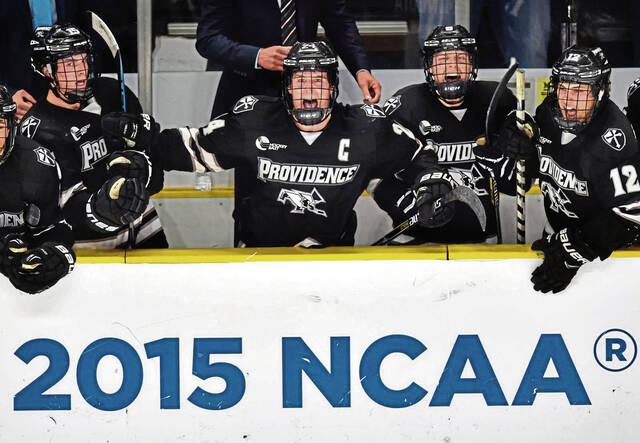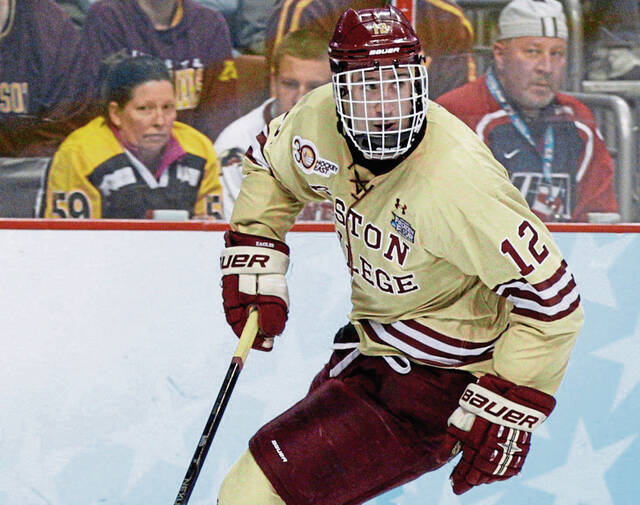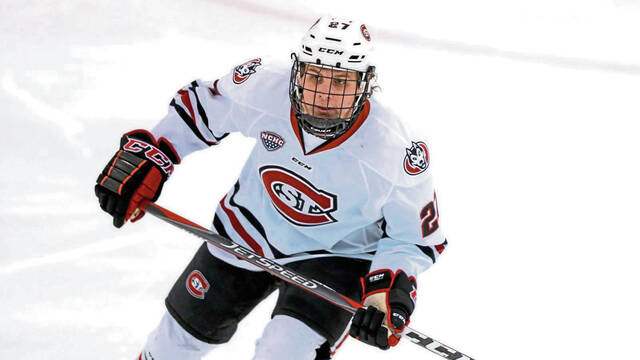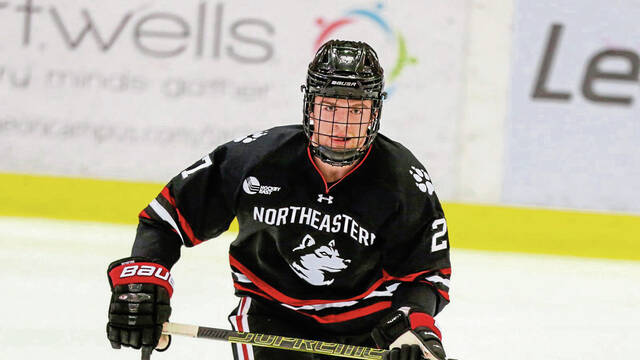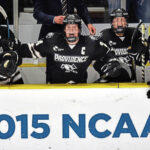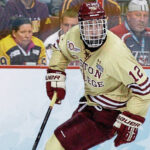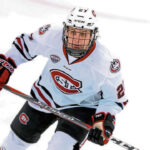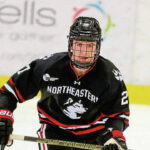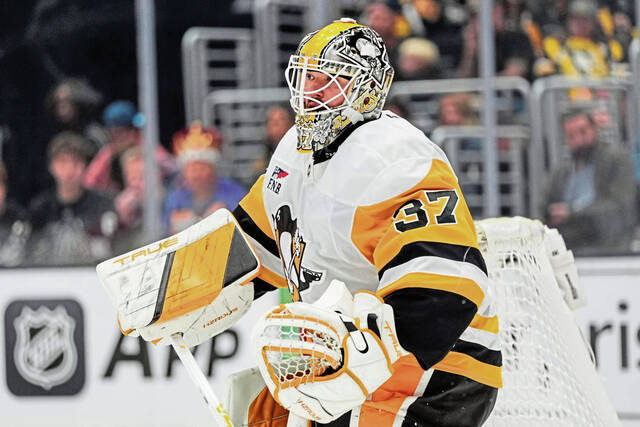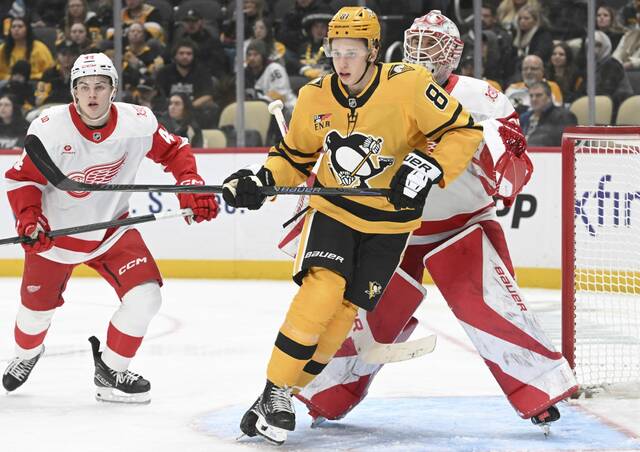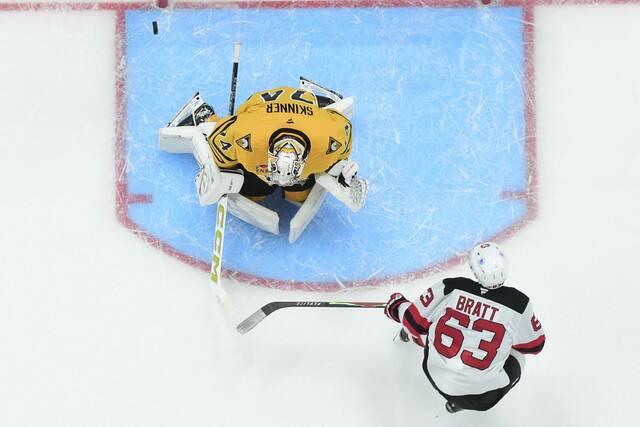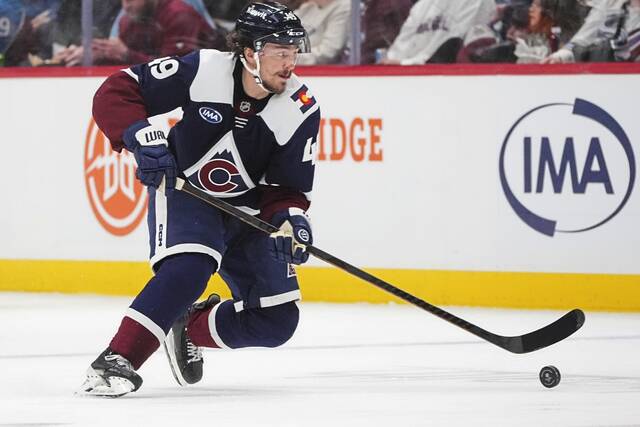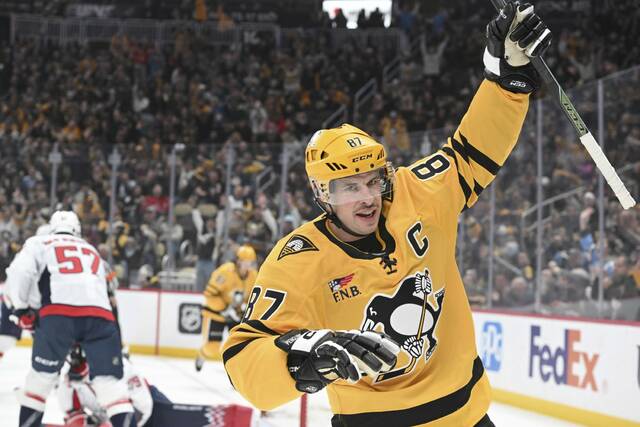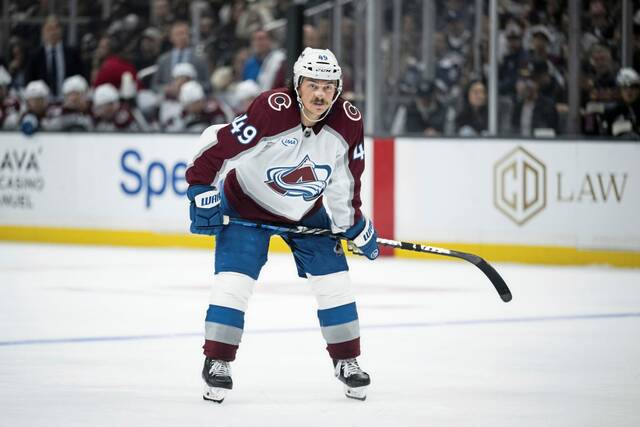This weekend is the most important part of the calendar for NCAA men’s hockey.
On Thursday, Western Michigan and Boston University defeated Denver and Penn State, respectively, in the Frozen Four semifinal round of the NCAA tournament, setting up Saturday’s championship game.
And on Friday, the Hobey Baker Memorial Award, which recognizes the top collegiate player, will be presented.
Beyond that, this is a vital time of year for college players with NHL aspirations to determine their futures.
Unlike some other professional sports, NHL-drafted players can retain their collegiate status. Some will turn professional before exhausting their NCAA eligibility, whereas others will stay all four years they are permitted.
A handful of members of the Pittsburgh Penguins’ current roster went the college route and weighed those decisions as they were considering the professional options.
Most recently, rookie forward Rutger McGroarty signed with the Penguins almost immediately after his NHL rights were acquired from the Winnipeg Jets via a trade in late August, barely a month before he would have started his junior season at Michigan.
A first-round pick (No. 14 overall) in 2022, McGroarty reached an impasse with the Jets over a contract. While he has largely been hesitant to discuss the details of that dispute, it was clear he and Jets management had a different opinion over his route to the NHL.
Regardless, he was eager to turn pro as soon as the Penguins swung the trade fairly late into the offseason.
“Once you sign pro, I feel like you need to be 100% ready,” McGroarty said in Cranberry on March 31. “I felt like my game was in the right spot, but mentally, you need to be prepared to go live on your own. Realistically, it’s your job. You need to be ready to go attack every single day. You can’t fake it. You need to be mentally very prepared for what’s ahead of you.”
Other members of the Penguins went all four years, including forwards Kevin Hayes (Boston College), Tommy Novak (Wisconsin) and Bryan Rust (Notre Dame), as well as defensemen Matt Grzelcyk (Boston University) and Ryan Shea (Northeastern).
In Hayes’ case, health concerns led to him serving out his full college tenure.
A first-round pick of the Chicago Blackhawks (No. 24 overall) in 2010, Hayes suffered a serious injury to his left leg as a junior during the 2012-13 season.
“A really bad injury,” Hayes said. “I was out six, seven months. I was told I was probably never going to play hockey again. The whole thought of even signing pro was never even there. Then my senior year, I played with (future NHL All-Star forward Johnny) Gaudreau, and we lit it up.”
Hayes wound up posting 65 points (27 goals, 38 assists) in 40 games as a senior.
The Blackhawks still had his NHL rights, but those were going to expire in August 2013. Hayes opted to test free agency. He estimates all but two NHL teams contacted him.
“As the season was going, I was playing well and, obviously, they wanted me to sign,” Hayes said. “But it became clearer and clearer that there could be better options. It’s right you don’t get it until you’re 27. I got it at 20. I really thought I was going to sign in Chicago until the last week. I had some serious emotional ties there. Talking to my family and agent, just thought, ‘don’t rule out Chicago but listen to other teams.’ ”
Grzelcyk, a third-round pick (No. 85 overall) of the Boston Bruins in 2012, also stayed all four years at Boston University because of ailments during his sophomore (shoulder) and junior (knee) seasons.
“Made a decision (to stay), and I ended up finding two weeks later that I had a torn ACL,” Grzelcyk said. “Kind of a blessing in disguise to not start pro hockey like that. Everyone is different, but I felt four years was going to be the best for me to physically develop as best I can. With one year left of school, too, finishing up was a promise I made to my parents a long time ago too. I’m really happy, obviously, with how things worked out too.”
Grzelcyk completed his communications degree. His neighbor in the Penguins’ dressing room, Shea went four years to earn a business degree from rival Northeastern.
“My parents were pretty strict on getting an education,” Shea said. “You go three years in the business school at Northeastern, you might as well just stick it out. It’s not an easy thing to do.”
Shea was a fourth-round (No. 121 overall) draft pick of the Blackhawks in 2015 and, like Hayes, he never signed with that team after it loaded up on defensemen in later drafts. He wound up agreeing to a deal with the Dallas Stars in 2020.
“I’ll compete with anyone, but they drafted a lot of high-end (defensemen), like first-, second-rounders,” Shea said. “I (thought) I was maybe not in their plans. Which was fine. They were going a different direction. I came back (to school). My senior year was great. I knew was I going to get a lot of interest (from other NHL teams), which I did after that. It was one of my better decisions I’ve had in my hockey career.”
Forward Noel Acciari made a decision to leave following his junior season at Providence. After leading the Friars to the national title in 2015 and completing his marketing degree, the undrafted Acciari, a native of Johnston, R.I., signed with the Boston Bruins.
“I couldn’t be in a better position than I was,” Acciari said. “Boston called, and to be able to play in my backyard, essentially, in front of friends and family and not be too far away was a dream come true. I think I made the right decision. I could have played another year (with Providence). … But I think everyone is different. … I was also older and maybe had that maturity. … For me, I thought it was my time to go, move on.”
For undrafted players like Acciari and forward Blake Lizotte, leaving early offered a wildly shifting dynamic of going from political science classes to being courted by several NHL franchises.
“I’d probably say 15 (teams),” said Lizotte, who left St. Cloud State after two years before signing with the Los Angeles Kings in 2019. “It’s a lot for a college kid. It happens fast because your season just ends. You’re dealing with the disappointment of losing your college season, then all these decisions that you have to make. Life decisions that you can’t really undo. It’s a serious decision. Kind of a whirlwind. It’s an exciting time. A wide range of emotions.
“But overall, it’s an awesome time because your dream of the NHL is coming true at that point.”


